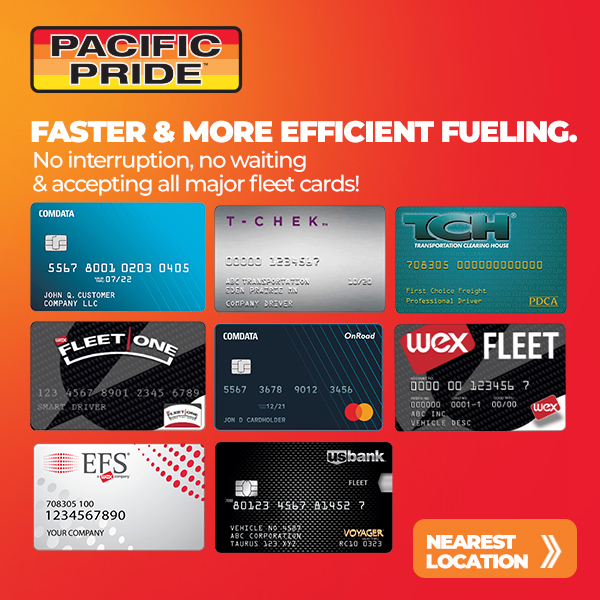
By Ed Smith, President, Agile Fleet
What would you say if I told you that you could reduce fleet costs tomorrow? You can. Did you know that having, communicating, and consistently enforcing policy can dramatically reduce fleet costs? I like to say that having good fleet policies is like having a money tree. If a cost-saving policy is communicated and enforced consistently, it will save you money every time.
Do you have a money tree?
Despite the obvious benefits and the relatively low cost of developing them, many fleets do not have written policies. If they do, they do not have systems in place to efficiently communicate and enforce them. Why? Seriously, why?
One great example of such a policy is limiting the use of personal vehicles for official use. There are many reasons it is not a good idea to have employees using personal vehicles for business purposes in most cases. Cost is chief among those reasons. Reimbursement for a personal vehicle is often 35% more expensive than the cost of fleet vehicle and often is reimbursed even when a fleet vehicle sits idle and is available. Personal vehicle usage reimbursements cost public fleets tens to hundreds of thousands of dollars each year. Is your fleet one of them?
Requiring employees to use a motor pool vehicle is considerably more cost-effective than reimbursement for personal vehicle use. But how do you control it before the fact? One way is by going to an all-online vehicle reservation process that requires drivers to check for the availability of a motor pool vehicle first. Only if a vehicle is not available should drivers be allowed to use their own vehicle. This enables organizations to drastically cut back on personally owned vehicle (POV) mileage reimbursement while maximizing the utilization of their own vehicles.
Our client, Jason Allen of Scott County, tells us: “Before we put in the Agile Fleet reservation system, we were paying $250,000 a year in personal mileage reimbursement. After a simple policy change to prioritize use of motor pool vehicles over personal vehicles, we reduced our annual costs in 2020 to $41,706. By introducing a reservation system that was very easy to use, we removed the barriers and objections to implementing the cost-saving policy. Since the cost to use a motor pool vehicle is approximately 38-cents per mile, versus the county paying out 55-cents per mile for the use of a personal vehicle, our savings started immediately.”
Policy regarding use of personal vehicles is just one example of a way to save money. Imagine what a dozen or more cost-saving policies can save your fleet.
You do not need to reinvent the wheel when drafting your fleet’s policy. You can get good templates and guidelines from industry resources such as NAFA Fleet Management Association. Or borrow policies from a fleet that is like yours. Even a good online search will come back with hundreds of examples for common fleet policies.
Some organizations we work with create a ‘policy steering committee’ made up of fleet stakeholders to help formulate relevant policies. Such committees can provide feedback from diverse points of view and pinpoint gaps that need to be addressed. If you get your stakeholder buy-in from the outset, a policy has a better chance of being embraced by your organization.
Policy is something that must continually evolve. It is not a one-and-done endeavor. Consider updating one section of your policy every month. That way, when you do communicate changes to fleet drivers, they are exposed to small pieces incrementally rather than all at once.
My last word on policy…use it! Drivers cannot follow policies they do not know about. Don’t forget to communicate and enforce policy at every opportunity. Fleet management information systems are a great way to do this.
________________
Are you considering launching a new motor pool, or automating your existing one? Agile Fleet has the technology and industry experience to help you make it a success.
I invite you to set up a custom demo call with us. We’ve helped many fleets launch very successful automated motor pools, and we’re confident we can help you, too.
On the call, we will discuss your fleet challenges as well as common challenges in your industry and how we can overcome them with our fleet management information system. We will address specifically, how to:
• Get your fleet user and vehicle data organized and online
• Share vehicles in a self-service motor pool
• Set up automated maintenance plans and reminders
• Automatically communicate and enforce policy consistently
• Right-size your fleet, reduce costs and better serve the users of your fleet
• Incorporate GPS and telematics
After our brief discovery call, we will set up a live web session to directly address your fleet challenges at a time that is convenient for you and your team. We will tailor the demo based on the needs of your fleet and share what we know about fleets in your industry.
Want to talk? Please set up a time that is convenient for you on our client success manager’s Scott Farmerie’s calendar here, and I will be happy to join the call. As always, reach out to me directly with any questions at [email protected] or give me a call at (571) 498-7555 x501.




